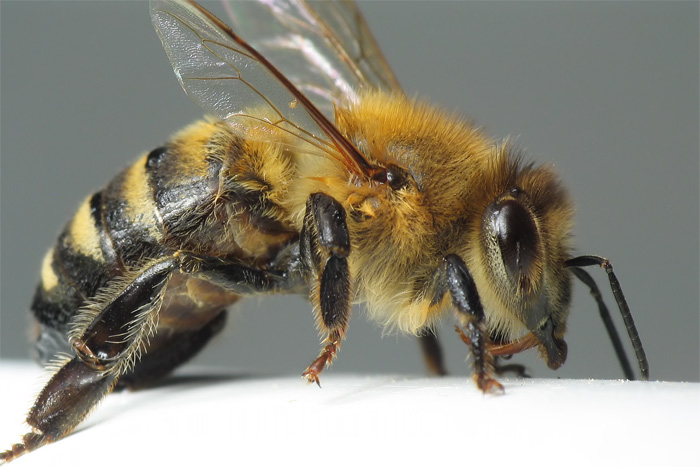Swelling red bumps, a difficulty in breathing, nausea, and sometimes even unconsciousness are some of the common symptoms of a bee sting. We often tend to avoid bee hives or even single bees out of the fear of being stung and injected with bee venom thanks to complications such as anaphylaxis, a life-threatening allergic reaction. However, there has been a growing number of testimonials from individuals who claim that bee stings (or more specifically bee venom) have anti-cancer and anti-arthritis properties.
Source: John Wilhelm is a photoholic
Commonly known as Bee Sting Venom Therapy, apitherapy is the use of bee products for medicinal purposes. This is not a recent phenomenon. The ancient Egyptians used the royal jelly – a substance produced by honey bees usually to feed the larvae – as a treatment for arthritis and as well as for cosmetic purposes. Researchers of apitherapy believe that the effectiveness of bee stings in treating various ailments is due to the compounds, melittin and adolapin, present in bee venom. These compounds can reduce inflammation and pain, as well as aid the body in using its own defenses to fight off illness.
Although few studies have been done on bee sting therapy as a possible treatment for cancer, some experiments have shown promise in the use of bee venom as a remedy for arthritis. In a study conducted on rheumatoid arthritis (RA), scientists divided a group of patients suffering from RA into two groups. One group was given regular RA medication (the control), and the other group was given bee venom. They then compared joint swelling, joint activity, pain, and other measurements of RA symptoms. They discovered that the negative effects of RA on joints were generally lower for the bee venom group than the control group. It appears that bee venom has some effectiveness in alleviating the symptoms of RA.
Source: Image Source
Does it work? Is it dangerous? As with many alternative therapies, the true effectiveness of these treatments is still widely unknown and unproven. There have not been enough trials to confirm the validity of these claims. Therefore, individuals should be cautious in trying Bee Venom Therapy, as it can cause dangers for those who may have extreme allergic reactions to bee stings. This treatment may elicit unknown side effects, even for those who are mildly discomforted by bee stings. So for now, we should be wary of the “buzz,” and focus on ways to prove or disprove the functions of Bee Venom Therapy.
Feature Image Source: Darko Mareš










